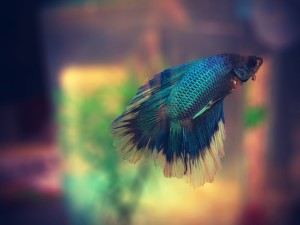This content has been archived. It may no longer be relevant

You see, today’s date is set aside for foolishness in many parts of the world, and in French, an April Fools’ Day prank is known as a poisson d’avril, or “April fish”. Why it’s called this is a long story, too long for this space. In the short version: April 1st was the date of the New Year observance until a few hundred years ago, and after the switch to January 1st was made, those who insisted on sticking to the old date were susceptible to being pranked. And with April 1st often falling within Lent, when Catholics were forbidden from consuming meat, there was a lot of fish around to play pranks with!
Fast forward to the France of recent days, and any prank or joke that makes a person look like a fool is a poisson d’avril. Children stick paper fish on each other’s backs, and see how long their victims will walk around unknowing (sort of a socially sanctioned KICK ME sign), and adult jokesters get up to the same nonsense they do everywhere else.
It’s a strange holiday, and it rounds off the emotional calendar in the countries that recognize it. Even large national entities like the BBC have been known to get in on the foolishness over the years. Who doesn’t like an excuse to be silly?
Humor is one of the last frontiers to be crossed when one finds oneself engaging with a foreign culture. Learning what makes them laugh, and why, in a new language is something that can only come with immersion and experience. Is this something to take into account in your translations? That depends on your materials. Are they technical or legal in nature? No need to worry about humor, obviously. Are you dealing with marketing materials? Consider learning what your audience is liable to find funny – you may not want to make them laugh on purpose, but you don’t want unsolicited laughter, either. Consider the Parker pen, and translate with care!
Humor, comedy, and foolishness are mainly important for literary translation work, which isn’t something we do at TrueLanguage, but it’s always an interesting topic. Check out this piece on the challenges of translating humor… and may the rest of your day be free of fish!

